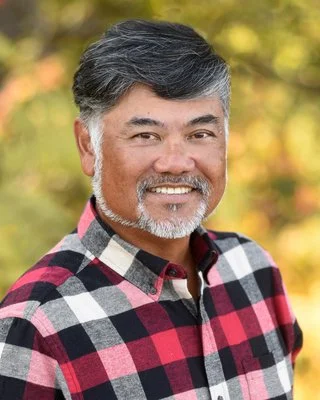Trauma & PTSD
Finding A Therapist To Help You Feel safe again
WHO IS THIS FOR?
It can be hard to cope with Trauma or PTSD when you don't feel you can burden those around you with these details of your life. Work with an affirming therapist who will meet you where you are in your journey and help you build a deeper understanding of your past.
Whether you have processed your trauma yet or not, our counselors can help you learn strategies to more effectively cope with the related symptoms you are showing in your life.
We are here to help you find growth by beginning to own your story and finding safety in your life and your relationships again.
For Those Who Have Lost Someone
Stress is our natural fight-or-flight response. In some cases, it can be beneficial—if you truly need to run from danger, your stress response can save your life. In our daily lives, we experience stress for many reasons. However, even though stress is normal, it can be a red flag letting you know that trauma might be on the horizon.
For Those Who Have Lost Themselves
A traumatic encounter often entails a moment of shock or extreme emotional distress. Acts of violence against you are usually traumatic, along with natural disasters or car accidents. People in the military who witness armed combat often report the experience as traumatic. All of these moments share something in common: they threaten our sense of well-being.
For Those Who Have Lost Something
When trauma is prolonged and you feel like you can’t run away from the situation, you might be suffering from Post-Traumatic Stress Disorder. For those with PTSD, there may be triggers in their daily lives that have them reliving the traumatic experience again and again. Without professional help, PTSD can be a lonely journey.
WHAT IS PTSD?
When trauma is prolonged, it can develop into Post-Traumatic Stress Disorder (PTSD). For people with PTSD, their trauma is not in the past—it very much exists in their present life. They might relive the experience daily, through dreams or memories, without wanting to do so. And unfortunately, anyone from any race, gender, or background can experience PTSD.
What We Know:
As we mentioned above, stress is natural. When we encounter dangerous situations, our fight-or-flight mechanisms are activated to help us deal with the imminent threat. A car accident is a perfect example. Our bodies immediately react in order to brace for impact, and this could save our lives.
However, sometimes your body isn’t able to get rid of that feeling, the moment that caused the fight-or-flight response. The default state of your mind becomes stuck under high adrenaline and stress. This prolonged state can have adverse mental and physical effects, impacting all areas of your life.
How To Recognize PSTD:
PTSD is known for four different kinds of symptoms. People with PTSD find themselves reliving their traumatic experience, whether through flashbacks, memories, or dreams / nightmares. They also seek to avoid certain things that might trigger memories of the traumatic event. Due to feeling constantly on edge, people with PTSD often seem angry and self-destructive, or might suffer from insomnia or lack of focus and concentration. Finally, people with PTSD show elements of mood disorders, symptoms that might be confused with depression or anxiety.
If you have been through a traumatic experience and are having trouble moving past this moment, a mental health professional can help you deal with the root of your discontent and lead you toward healing.
Frequently Asked Questions
As A Military Veteran, How Does PTSD Affect Me?
There is no doubt that military veterans who witness armed combat first-hand experience trauma which can live on for many years. Those who watch their loved ones pass away are also prone to suffer from PTSD. Studies show that about 20% of veterans who return from a tour suffer from PTSD. The longer they are deployed, the more prevalent it is because there are more opportunities for them to experience trauma.
As A Woman, How Does PTSD Affect Me?
In most cases, women show higher instances of post-traumatic stress disorder. In the military, female soldiers report higher numbers not just due to combat but also due to sexual harassment and abuse. In the non-military population, women are also more likely to develop PTSD, likely due to the fact that women experience higher rates of sexual assault than men, leading to more trauma and potential for PTSD.
As An Ethnic Minority, How Does PTSD Affect Me?
Some racial and ethnic minorities report higher numbers of PTSD. PTSD seems to be higher in Black Americans, followed by White Americans, Hispanic Americans, and Asian Americans. However, the data changes quickly, and individuals don’t always follow the trends of their ethnic groups. Some mental health experts argue that these studies don’t account for racial trauma and other exposure to violence that minorities are more prone to experience.
Can My Children Suffer From PTSD?
Unfortunately, the answer is yes. Children can experience PTSD just like adults do. However, young children often don’t experience flashbacks, and they might find themselves believing that there are signs to predict the next traumatic event. Children regularly come to believe that they are at fault for the traumatic experience, leading to negative self-image and problems with self-worth that may follow them into adulthood.
trauma is a fact of life.
It does not, however, need to be a life sentence.
| PETER LEVINE |
LEARNING TO COPE WITH TRAUMA & PTSD
One Day At A Time
Dealing with trauma and PTSD isn’t easy. By the time a person has developed PTSD, their mind has been trained to react to specific situations, and those distressing memories are easy to trigger.
Taking life one day at a time ensures that you are not rushing and getting frustrated. By taking small steps toward self-improvement, you are also giving yourself the space you’ll need for prolonged healing.
Practice Self-Care
Mental health is incredibly important, no matter the situation. For PTSD and many other mental health concerns, our advice is always to start by becoming a healthier person.
Regular exercise, healthy diets, and mindfulness practice are great ways to ensure that your mental health will improve. Start slowly, but make these improvements to begin the path toward healing.
Share Your Thoughts & Feelings
If you have friends or loved ones with whom you feel comfortable sharing, try opening up and talking about your lived experience. Feeling understood by someone else is a powerful therapy.
Sometimes, people with PTSD prefer to see a mental health professional because they are trained to help those who suffer from trauma. If you’d like to speak to a therapist, contact us today.











